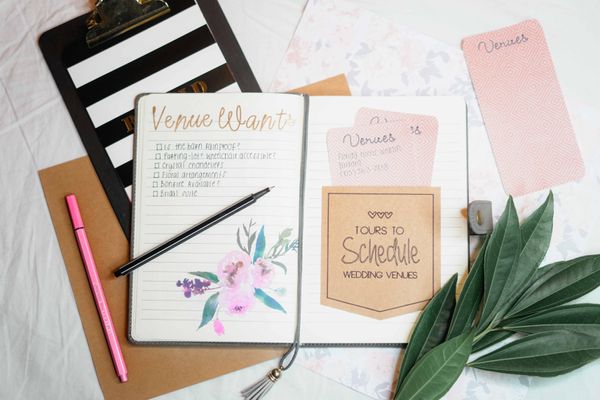Planning a wedding is an exciting journey filled with dreams of a beautiful celebration. However, it's no secret that weddings can come with a hefty price tag. A well-organised wedding budget is your best friend to ensure your wedding stays within budget while still turning your dreams into reality. We will walk you through creating and effectively managing your wedding budget with the Planaday Budget Tracker.
Section 1: Building Your Wedding Budget Tracker
- Start with Your Total Budget: Start by deciding on your overall wedding budget. Our article, The Ultimate Nigerian Wedding Budget Calculator: Plan Your Dream Wedding Without Breaking the Bank will guide you. Also, decide how many ceremonies (e.g. traditional wedding, civil wedding, white wedding, etc) you want to have and over how many days. Consider your financial situation as well as contributions from your family.
- Categorise Your Expenses: Break down your expenses by ceremony. Create categories for your wedding expenses, such as Planning and Decoration, Entertainment and Media, Wedding Apparel etc.
- Set Priorities: Identify the critical elements of your wedding that hold the highest significance to you. For instance, if you have a strong desire for diverse cuisine options but find that your chosen venue is both costly and larger than needed for your guest list, consider selecting a more affordable venue. Doing so allows you to reallocate a greater portion of your budget towards catering, effectively prioritising your preferences.
- Research Costs: Research and gather cost estimates for each category based on your location and preferences. You can leverage the Planaday Vendor Assistance service to streamline your vendor search.
- Build Your Budget Tracker: Track your budget using the Planaday Budget Tracker. Create categories as needed, list cost items, assign estimated costs to each, actual costs based on how much you paid and other details.
Section 2: Managing Your Wedding Budget
- Track Expenses: As you make payments and incur expenses, enter the actual costs into your budget tracker. This will help you stay on top of your spending.
- Regular Updates: Make it a habit to update your budget tracker regularly. You can track upcoming payments and budget summaries. This will give you a real-time view of your budget's status.
- Compare Estimates to Actual Costs: Continuously compare your initial estimates to the actual costs. Adjust your budget as needed to stay within your financial limits.
Section 3: Tips for Staying on Budget
- Prioritise Needs Over Wants: Focus your budget on essential elements like the venue, catering, music and attire before allocating funds to less crucial items.
- Negotiate with Vendors: Don't hesitate to negotiate prices with vendors to get the best value for your money.
- Guest List Management: Keep your guest list in check. We all know how hard it is to stop your parents from inviting the whole world to your wedding, so a great way to manage your guest list is by making your invitation “Strictly by Invite”.
- Review and Reflect: Regularly review your budget and make adjustments as needed.
Maintaining a budget is not easy, but by utilising this guide, you'll be well-equipped to create, maintain, and optimise your budget, helping you achieve the wedding of your dreams without breaking the bank.









